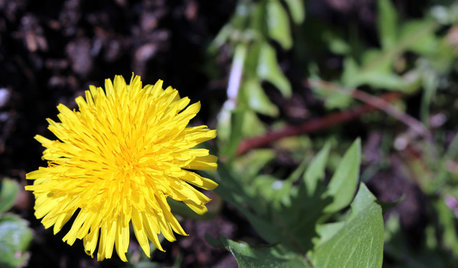Herbalism and alt med resource
rusty_blackhaw
14 years ago
Related Stories

GARDENING GUIDESWhy Your Garden Might Be Full of Weeds
Tired of battling unwanted plants? These surprising reasons for weediness point the way to cures
Full StoryHere's a useful website that's collected links to all the articles in the Cochrane Collaboration database on herbalism and other forms of complementary/alternative medicine. It's handy to have these all in one place. They're organized so you can look up remedies for specific diseases, check out treatments or find everything in the database on a particular form of alt med (i.e. herbalism, acupuncure, massage therapy etc.).
The Cochrane Collaboration (named after Archie Cochrane, the British epidemiologist), is a nonprofit organization based in Britain, with volunteers who put together systematic reviews of all kinds of medical treatment, recognized around the world for their quality.
Such reviews are not perfect (limitations include the tendency of most scientific journals (which are source of the articles being reviewed) to favor positive results over publishing negative findings), but are still one of the best sources available for evaluating treatments, and a good starting point if you want to check out an herb or supplement that you're not familiar with.

novice_2009
eibren
Related Professionals
Simpsonville Landscape Architects & Landscape Designers · Rancho Cordova Landscape Architects & Landscape Designers · Bedford Landscape Contractors · Bowie Landscape Contractors · El Mirage Landscape Contractors · Farmington Landscape Contractors · Oklahoma City Landscape Contractors · Oviedo Landscape Contractors · Welby Landscape Contractors · Baileys Crossroads Landscape Contractors · Hueytown Landscape Contractors · Clearfield Landscape Contractors · Miami Springs Carpenters · Boca Raton Roofing & Gutters · Gibsonton Roofing & Guttersnovice_2009
rusty_blackhawOriginal Author
simplemary
rusty_blackhawOriginal Author
goshen